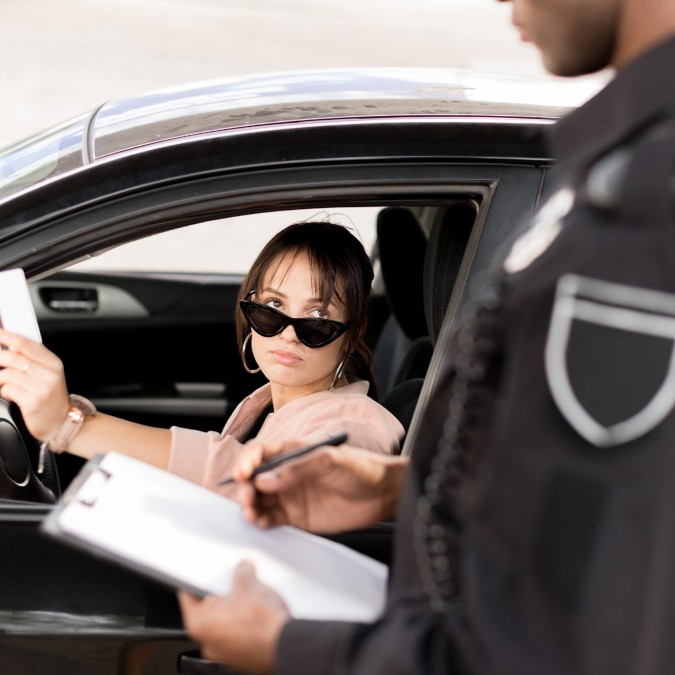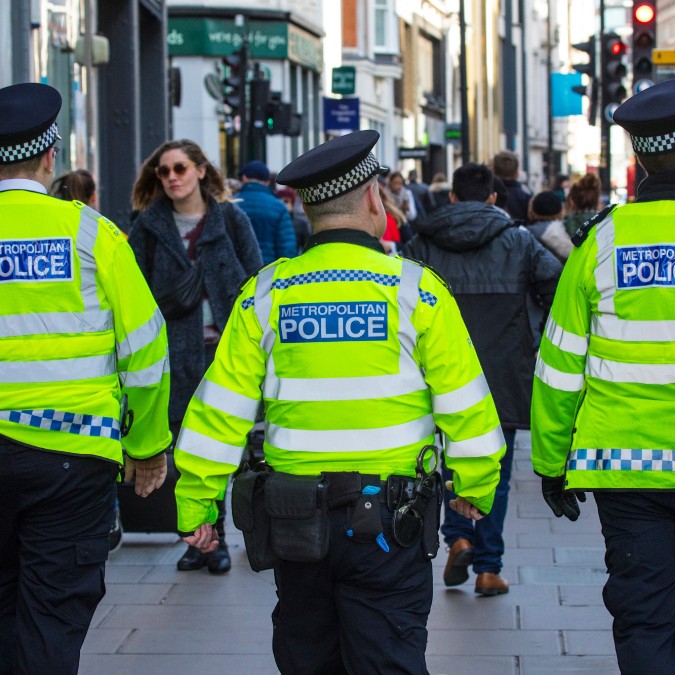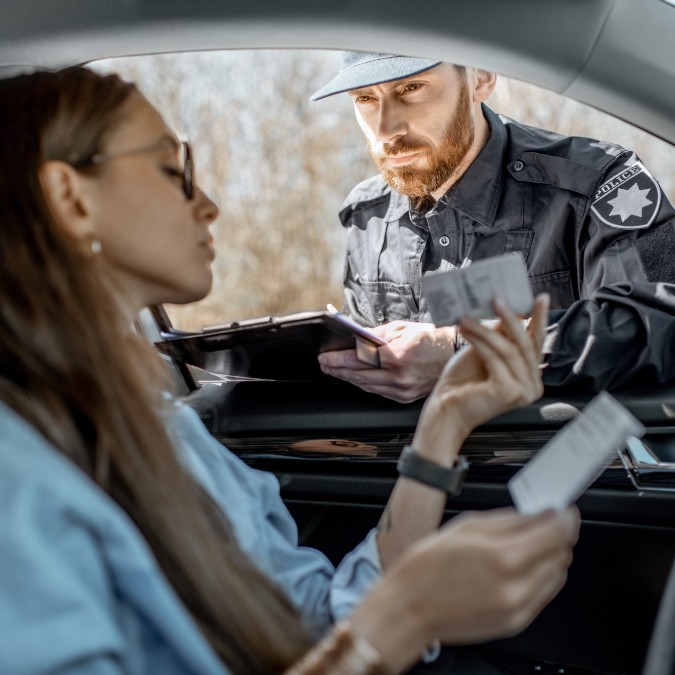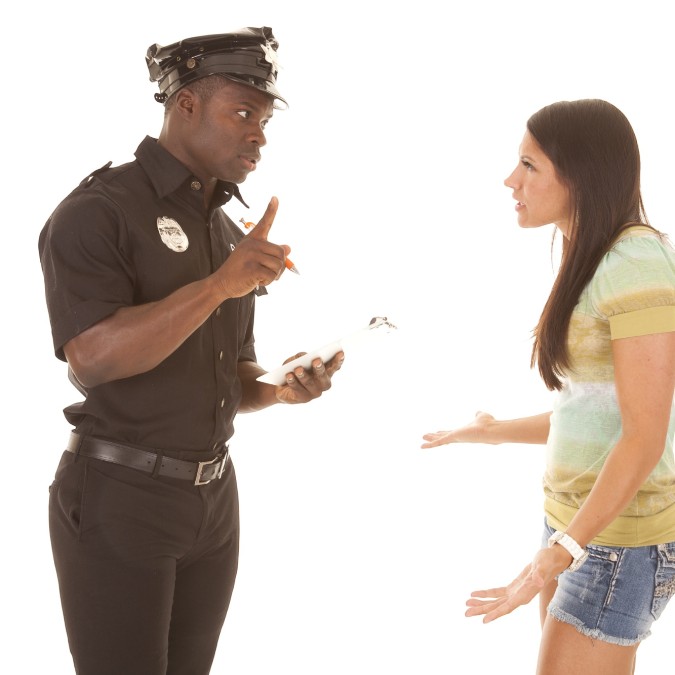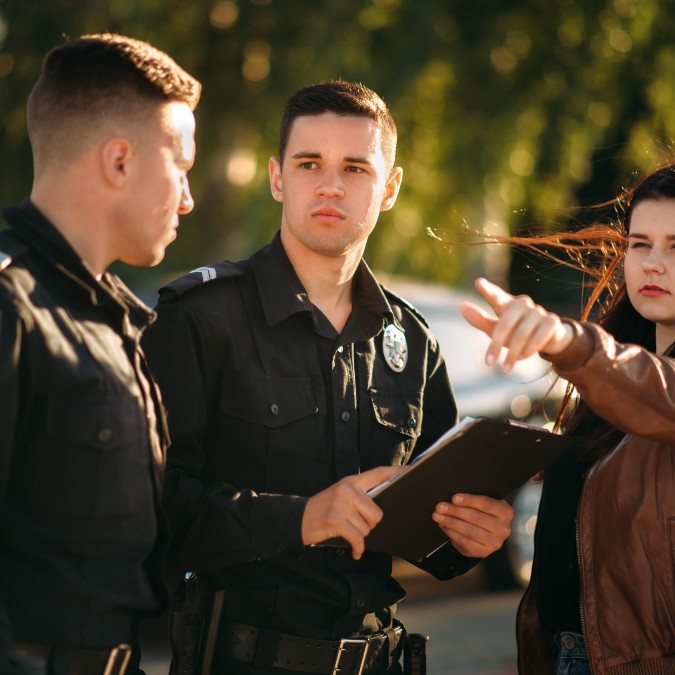Interacting with law enforcement officers requires tact and respect, as certain phrases can escalate situations or even result in legal consequences. As the adage goes, “If you don’t have anything good to say, don’t say anything at all.” Everything you say to a police officer can be used against you and can escalate the situation at hand. Here are ten statements to avoid when speaking with a police officer.
1. “Do you know who I am?”
This question may come across as entitled and can aggravate an officer rather than garner favor. Instead, opt for a respectful tone that won’t be perceived as arrogant. It doesn’t matter who you are, no one is above the law. People who have tried this tactic often get arrested, so it may not be the best idea to try and assert your power and influence.
2. “Why did you pull me over?”
While it’s within your rights to know why you were pulled over, starting an interaction with a police officer in a confrontational way may have a negative effect. Usually, a police officer will ask you if you know why you pulled over. Allow him or her to lead the interaction instead of coming off as combative during a traffic stop. Being aggressive will probably guarantee you getting a ticket.
3. “You’re just doing this because of [insert demographic].”
Accusing an officer of bias without evidence can lead to further complications and hinder constructive dialogue. Without substantial evidence, these allegations can damage the officer’s reputation and undermine their authority. Making unfounded claims of racism may also divert attention from addressing systemic issues within law enforcement. It’s crucial to pursue accountability through proper channels and focus on constructive solutions rather than making unsubstantiated accusations.
4. “I’m going to sue you.”
Threatening legal action can inflame a situation and may not be advisable without consulting legal counsel. If your rights were indeed violated, you might have grounds for a civil rights lawsuit against the officers and their department. Your attorney can guide you through the legal process, including filing a lawsuit, if deemed appropriate. But, this may not be the best thing to say during an interaction with a police officer.
5. “I don’t have to listen to you.”
Disregarding lawful commands can result in additional charges or even physical restraint. While you do have the right to remain silent, you do have to cooperate with the police. It’s important to know your rights, but not escalate the situation. Try to remain calm and do what the officer tells you to do.
6. “Go ahead and search.”
If a police officer has any probable cause to search your vehicle or house, they can do so without a search warrant. However, you have the right to challenge a search or even frisk of your person later in court. If you say, “Go ahead and search”, you give consent to the search and waive your right to challenge it later. In the event of a search, it’s better to say less.
7. “I didn’t know I was committing a crime.”
Ignorance doesn’t mean that you can break the law. If you didn’t know you were speeding, for example, this probably won’t get you out of a speeding ticket. Playing dumb probably won’t help the situation. If a speed limit is posted, it’s your responsibility as a driver to follow that law. Many court cases have upheld the precedent that ignorance doesn’t excuse breaking the law.
8. “I’ll make sure you lose your badge for this.”
Threatening an officer’s livelihood can escalate a situation and may have legal ramifications. Threatening a police officer verbally is often considered a criminal offense, such as “threatening a public official” or “making terroristic threats.” These charges can result in fines, probation, or even imprisonment, depending on the severity of the threat and local laws. Police officers are trained to take threats seriously for their own safety and the safety of others. A verbal threat may prompt an escalated response from law enforcement, potentially leading to physical restraint, arrest, or use of force.
9. “I pay your salary.”
Every public servant, including police, has heard this statement. Just because you pay your taxes doesn’t make you a police officer’s boss. Furthermore, it doesn’t mean that you have any authority over law enforcement. If you use this line, the police officer will probably just get annoyed. This probably won’t work to your benefit in any way.
10. “I know someone in your department who will get me out of this.”
Attempting to leverage personal connections can be perceived as an attempt to circumvent the law and undermine the officer’s authority. Again, no one is above the law regardless of who you know. Taking this approach is not advisable, and will only have negative consequences. Overall, name-dropping rarely ever works.
Cooperating with Law Enforcement
In any interaction with law enforcement, maintaining a calm and respectful demeanor is crucial. Remember that officers are tasked with enforcing laws and maintaining public safety, and cooperation can often lead to more favorable outcomes. Of course, it’s important to know your rights. If you believe that you were treated unlawfully, consult a lawyer. Overall, cooperating with police is paramount for de-escalating interactions with law enforcement.
Read More
13 Interview Topics That Invade Privacy and How to Avoid Them
Your Money Your Choice: 15 Decisions You Can Make to Kickstart Your Financial Independence

